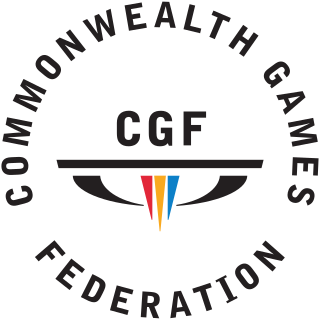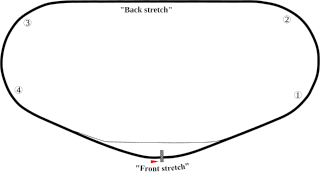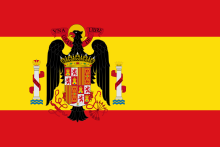The first Biathlon World Championships (BWCH) was held in 1958, with individual and team contests for men. The number of events has grown significantly over the years. Beginning in 1984, women biathletes had their own World Championships, and finally, from 1989, both genders have been participating in joint BWCHs. In 1978 the development was enhanced by the change from the large army rifle calibre to a small bore rifle, while the range to the target was reduced from 150 to 50 meters.

The 1966 FIFA World Cup Final was a football match played at Wembley Stadium, London, on 30 July 1966 to determine the winner of the 1966 FIFA World Cup, the eighth FIFA World Cup. The match was contested by England and West Germany, with England winning 4–2 after extra time to claim the Jules Rimet Trophy. The match is remembered for England's – as of 2018 – only World Cup and major international title, Geoff Hurst's hat-trick – the first and as of 2018 only one ever scored in a FIFA World Cup Final – and the controversial third goal awarded to England by referee Gottfried Dienst and linesman Tofiq Bahramov. The England team became known as the "wingless wonders", on account of their then-unconventional narrow attacking formation, described at the time as a 4–4–2.

The Commonwealth Games are an international multi-sport event involving athletes from the Commonwealth of Nations. The event was first held in 1930, and has taken place every four years since then. The Commonwealth Games were known as the British Empire Games from 1930 to 1950, the British Empire and Commonwealth Games from 1954 to 1966, and British Commonwealth Games from 1970 to 1974. It is the world's first multi-sport event which inducted equal number of women’s and men’s medal events and was implemented recently in the 2018 Commonwealth Games.

The Monte Carlo Rally or Rallye Monte Carlo is a rallying event organised each year by the Automobile Club de Monaco which also organises the Formula One Monaco Grand Prix and the Rallye Monte-Carlo Historique. The rally now takes place along the French Riviera in the Principality of Monaco and southeast France. Previously, competitors would set off from all four corners of Europe and ‘rally’, in other words, meet, in Monaco to celebrate the end of a unique event. From its inception in 1911 by Prince Albert I it was an important means of demonstrating improvements and innovations to automobiles.
The 1966 British Empire and Commonwealth Games were held in Kingston, Jamaica, from 4 to 13 August 1966. This was the first time that the Games had been held outside the so-called White Dominions. They were followed by the 1966 Commonwealth Paraplegic Games for wheelchair athletes. Jamaica remains the only host nation of a Commonwealth Games that did not win at least one gold medal in its own games.

The 1970 British Commonwealth Games were held in Edinburgh, Scotland, from 16 July to 25 July 1970.
This was the first time the name British Commonwealth Games was adopted, the first time metric units rather than imperial units were used in all events, and also the first time the games were held in Scotland.
Also, these games saw the first unique Games trademark logo: an emblem showing the Games emblem intertwined with a St Andrews Cross and a thistle. They were followed by the 1970 Commonwealth Paraplegic Games for wheelchair athletes.
The European Athletics Indoor Championships is a biennial indoor track and field competition for European athletes that is organised by the European Athletic Association. It was held for the first time in 1970, replacing the European Indoor Games, its predecessor event first held in 1966.

The 10th (X) European Athletics Championships were held from 10 August to 15 August 1971 in the Olympic Stadium of Helsinki, the capital of Finland. Contemporaneous reports on the event were given in the Glasgow Herald.
The Eventing World Championships, or the eventing competition in the World Equestrian Games (WEG), began in 1966. It includes both a team and individual competition for the best horses and riders in the sport of eventing. The World Championship is held every four years, and is held at the CCI**** level, the highest level of eventing competition.

The FIS Alpine World Ski Championships are an alpine skiing competition organized by the International Ski Federation (FIS).
The World Bridge Championships consists of several sets of championships organized under the auspices of the World Bridge Federation.

The Exploding Plastic Inevitable, sometimes simply called Plastic Inevitable or EPI, was a series of multimedia events organized by Andy Warhol between 1966 and 1967, featuring musical performances by The Velvet Underground and Nico, screenings of Warhol's films, and dancing and performances by regulars of Warhol's Factory, especially Mary Woronov and Gerard Malanga. Andy Warhol's Exploding Plastic Inevitable is also the title of an 18-minute film by Ronald Nameth with recordings from one week of performances of the shows which were filmed in Chicago, Illinois, in 1966. In December 1966 Warhol included a one-off magazine called The Plastic Exploding Inevitable as part of the Aspen No. 3 package.
Badminton has been one of the regular Asian Games sports since 1962 in Jakarta, Indonesia.

The Westall UFO encounter is an event that occurred on 6 April 1966 in Melbourne, Victoria, Australia. Around 11:00 am, for about 20 minutes, more than 200 students and teachers at two Victorian state schools allegedly witnessed an unexplained flying object which descended into a nearby open wild grass field. The paddock was adjacent to a grove of pine trees in an area known as The Grange. According to reports, the object then ascended in a north-westerly direction over the suburb of Clayton South, Victoria, Australia.
The 1966 ICF Canoe Sprint World Championships were held in the East Berlin suburb of Grünau in East Germany. This event was held under the auspices of the International Canoe Federation. From 19 to 21 August, competitors used the regatta course on the Langer See that had previously been used for the canoeing and rowing events at the 1936 Summer Olympics.

The 1966 Daytona 500, the 8th running of the event, was won by Richard Petty driving a 1966 Plymouth on February 27, 1966. Petty drove his number 43 to victory in just over three hours after starting the race on the pole. There were four caution flags which slowed the race for 22 laps. Petty came from two laps down to win the event after 198 laps were completed. The race was shortened by two laps due to rain. The win was Petty's second victory of the season.

The 1966 NASCAR Grand National Series evolved into the first of three NASCAR Grand National championships for David Pearson, whose 15 wins through the season was second only to Tim Flock's 18 victories in 1955 at that time. NASCAR allowed the return of the Chrysler Hemi engine in 1966, and at the same time Ford decided to boycott NASCAR for the season. Pearson captured the championship with 35,638 points over second place James Hylton who finished the season with no wins, but 33,638 points for his consistency and efforts.

Events in the year 1966 in Brazil.














